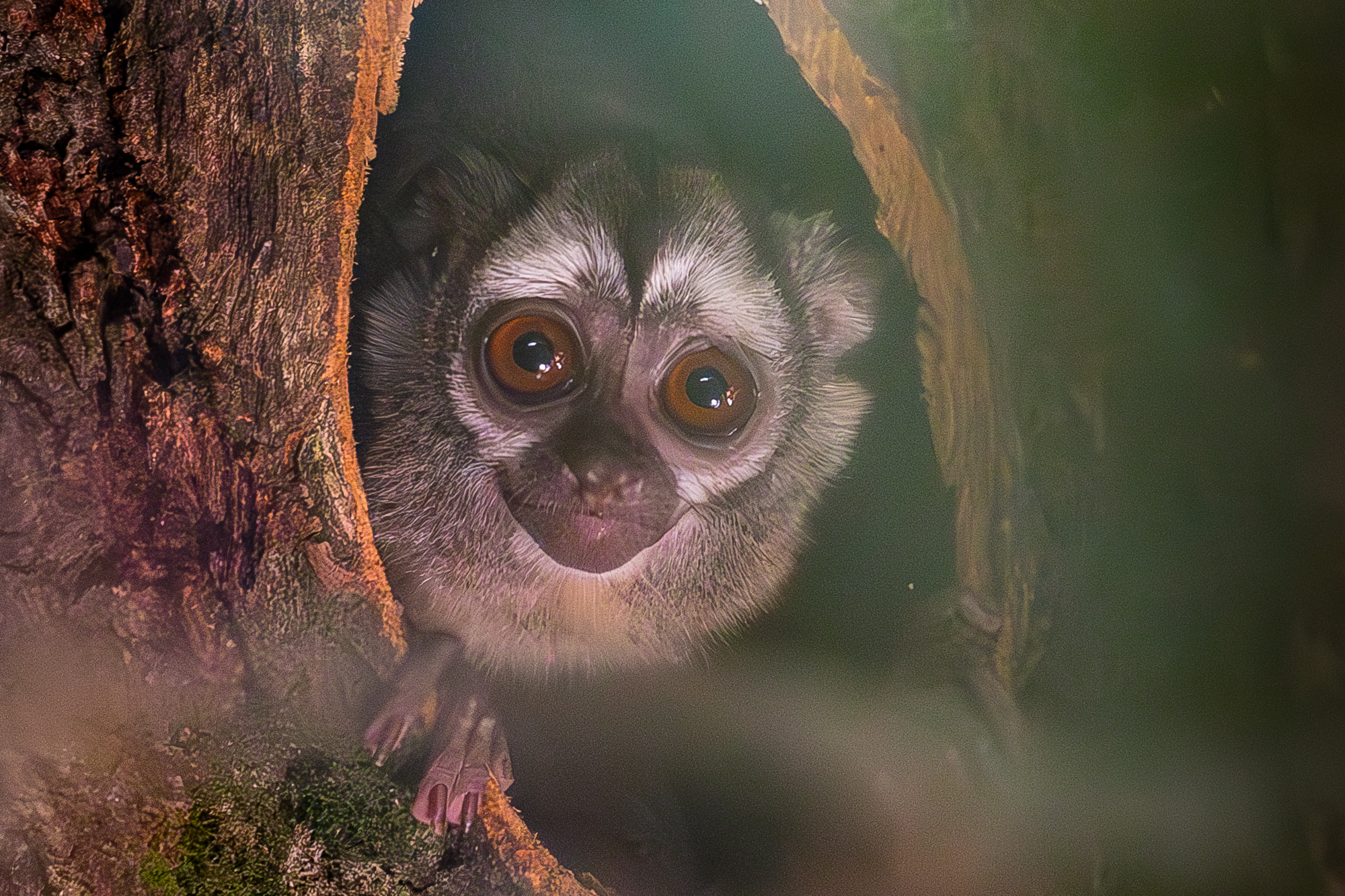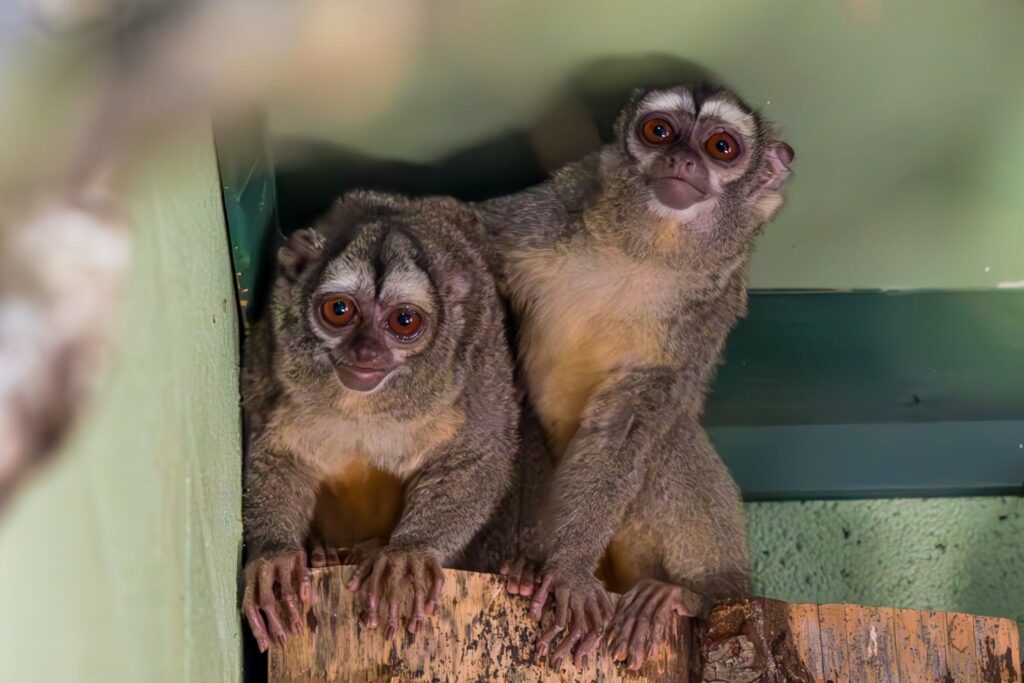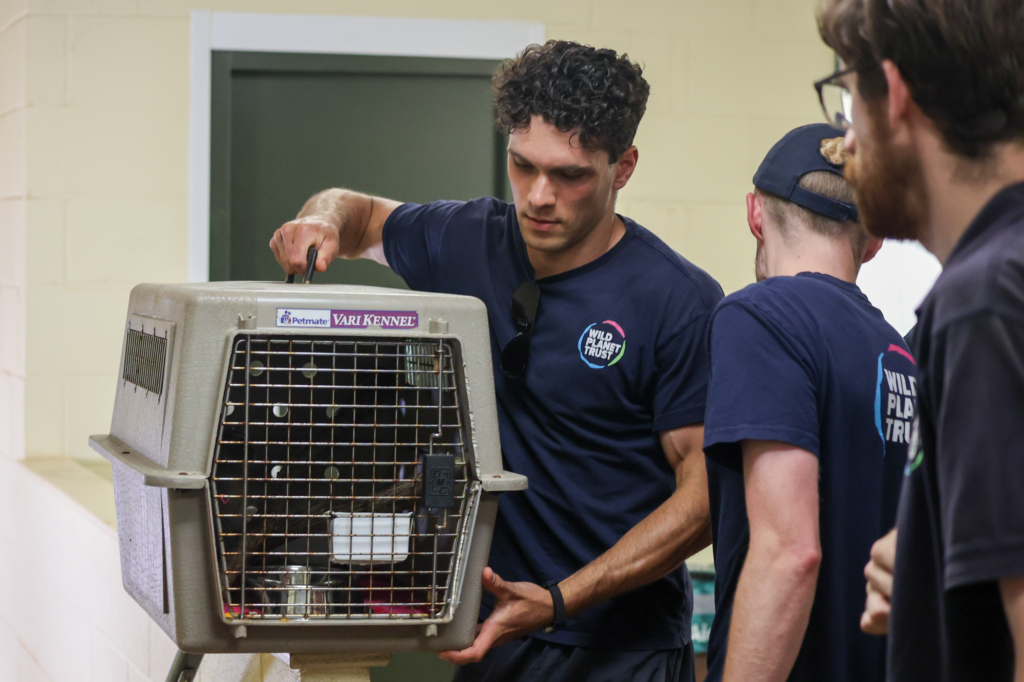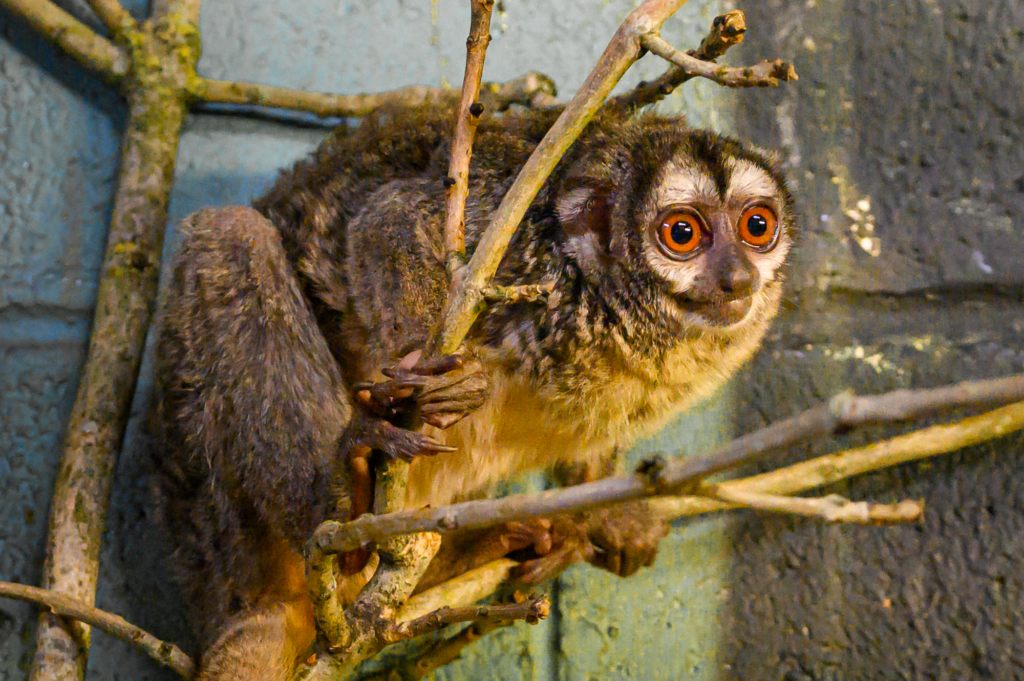
WORLD’S ONLY NOCTURNAL MONKEYS SWING INTO PAIGNTON ZOO FOR FIRST TIME EVER
Vulnerable species makes debut at Devon zoo as part of European conservation programme.
Paignton Zoo visitors will soon have the rare chance to meet the world’s only truly nocturnal monkeys. Two grey-handed night monkeys arrived from Folly Farm in Wales on Monday 30 June, marking the first time the zoo has housed this extraordinary species.

Male Diego, aged 11, and female Baroo, aged eight, represent an exciting new chapter for the zoo. The arrival comes as part of a European Association of Zoos and Aquaria (EAZA) recommendation, with Paignton Zoo joining just six other UK institutions in caring for this vulnerable species, highlighting the significance of this addition.
Nadia Gould, mammals team leader, commented:
“We’re absolutely delighted to welcome Diego and Baroo to our zoo family. Grey-handed night monkeys are fascinating creatures that most people never get the chance to see. Their nocturnal nature and vulnerable conservation status make them particularly special, and we’re proud to play a role in their conservation through the European Endangered Species Programme.”

Night monkeys, also known as dourocoulis, hold the distinction of being the only truly nocturnal monkeys in the world, making them another unique addition to the zoo’s diverse collection. The siblings will take up residence in the former Goeldi monkey enclosure, sharing their new home with Myrtle, the zoo’s beloved female armadillo.
Whilst grey-handed night monkeys are naturally nocturnal, Diego and Baroo have been maintained on a diurnal (daytime) schedule at Folly Farm to facilitate their care. Paignton Zoo’s expert animal care team will gradually adapt the pair to a more natural nocturnal routine over the coming months.
Nadia continued:
“The transition will be carefully managed to ensure the monkeys’ welfare whilst gradually allowing them to express their natural behaviours. Early morning and late afternoon may prove to be the best times for visitors to spot them being active as they adjust to their new schedule.”

Diego and Baroo will be on display immediately in their new enclosure, sharing space with Myrtle the armadillo. As they adjust from their previous daytime schedule to a more natural nocturnal routine, visitors may have the best chances of spotting them during morning hours and late afternoon periods.
Paignton Zoo is open daily from 10am. For more information about visiting and the grey-handed night monkeys, visit paigntonzoo.org.uk.
The International Union for Conservation of Nature (IUCN) classifies grey-handed night monkeys as Vulnerable. Native to the forests of Colombia and Venezuela, wild populations are declining due to habitat loss from urban development, agriculture, logging, and hunting.
With a generation length of eight years, every breeding pair represents a crucial investment in the species’ future, highlighting the importance of zoo-based conservation efforts. Paignton Zoo’s participation in the European Endangered Species Programme (EEP) – which coordinates breeding programmes across European zoos- demonstrates the collaborative effort required to maintain genetically diverse populations of threatened species and ensure the long-term survival of endangered species.


